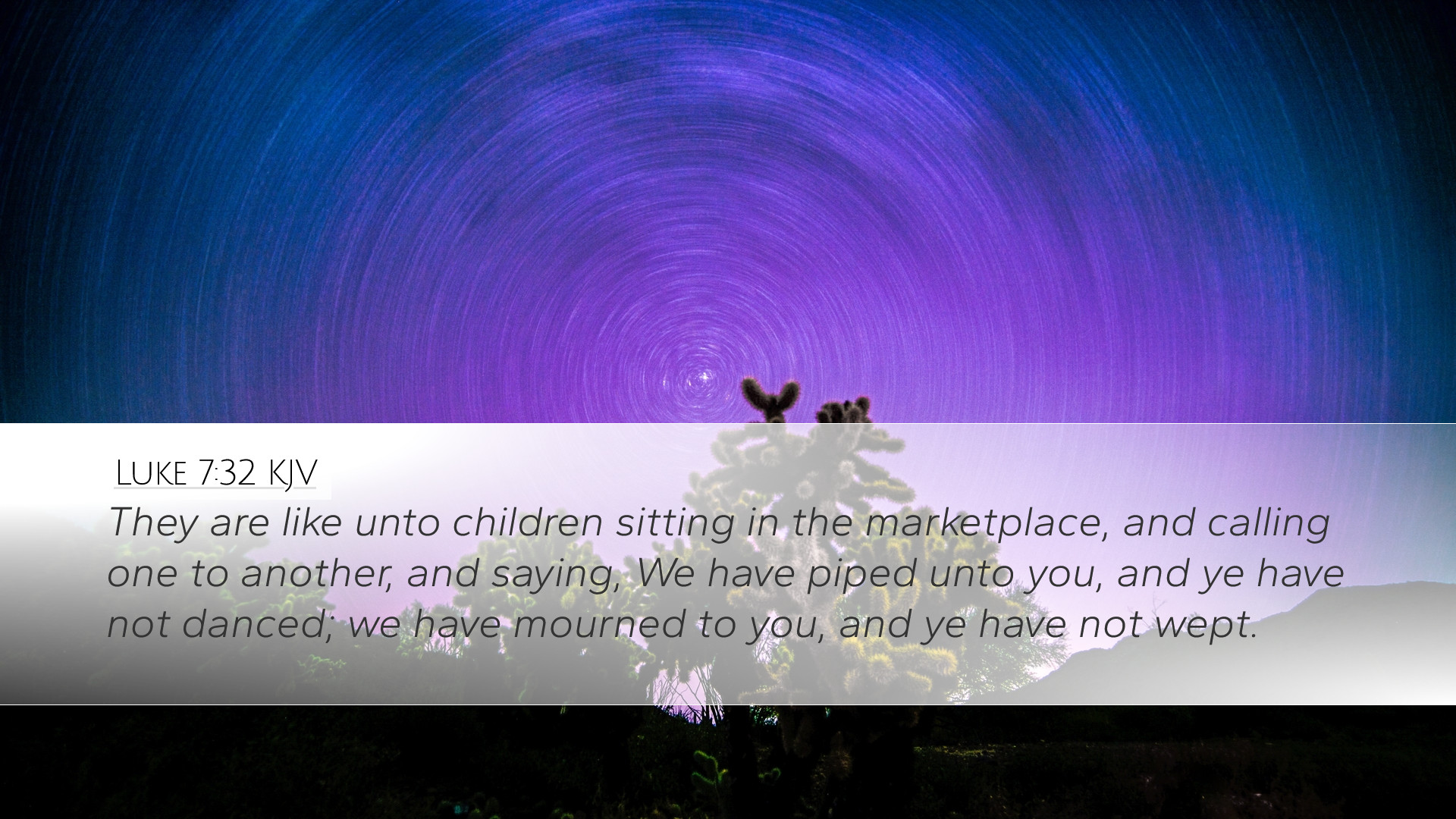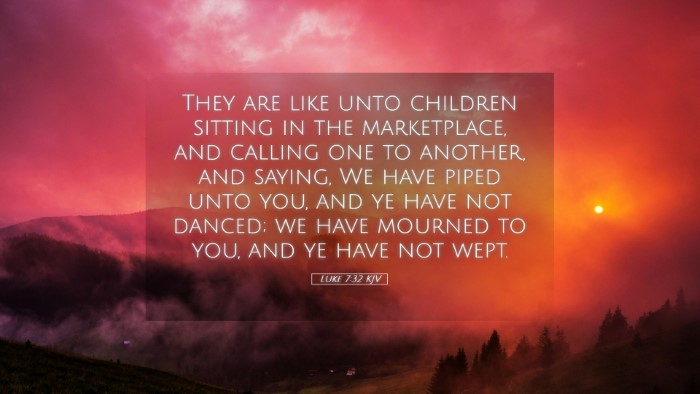Commentary on Luke 7:32
Luke 7:32 states: "They are like children sitting in the marketplace and calling to one another, ‘We played the flute for you, and you did not dance; we sang a dirge, and you did not weep.’” This verse, containing profound truth about human response to God's message, invites an exploration of its theological and practical implications.
Contextual Analysis
This verse appears in the context of Jesus’ discussion about John the Baptist and the varied responses people have to both the prophetic calling of John and the ministry of Jesus. The use of children in the marketplace serves as a metaphor reflecting the immature and fickle nature of human response to divine call.
Children in the Marketplace
Albert Barnes elaborates on the metaphor of children in the marketplace, indicating that these children represent the heart of humankind—often indecisive and easily influenced. The children call out to one another, demanding a response based on their whims, which highlights the nature of societal expectations. They entertain themselves with various tunes, but the shallow nature of their games shows how people often disregard deeper truths.
Symbolism of Flute and Dirge
The reference to playing the flute and singing a dirge symbolizes the two extremes of expectation. As Matthew Henry observes, the flute represents joy, while the dirge signals sorrow. The failure of the audience to engage with either tune illustrates the pervasive spiritual indifference that Jesus faced.
Jesus’ Critique of the People
Adam Clarke comments on Jesus’ critique, noting that it reflects mankind's inability to respond appropriately to God’s invitation, regardless of the message delivered. Whether it is joyous or mournful in tone, the people remain unresponsive, revealing a deeper issue of the heart.
Theological Implications
At its core, this verse challenges theological understandings of human nature and the nature of sinful indifference. Theologically, it raises questions about the nature of repentance, joy, and acceptance of God’s kingdom.
Human Indifference
This indifference, as highlighted by Matthew Henry, reflects the broader spiritual condition of the people of Israel. They are depicted as resistant to God’s overtures whether in joyful call or sorrowful warning. Such indifference leads to a lack of transformation and engagement in the ministry that Jesus embodies.
Responses to God’s Call
Furthermore, the playful tone of the children masks the seriousness of their lack of engagement. Clarke emphasizes that the wants of the soul should drive individuals towards sincere worship rather than towards entertainment. The call to ‘dance’ or ‘weep’ becomes a metaphor for the appropriate responses to God’s revelation. The divine call requires genuine engagement rather than passive observation.
Applications for Pastors and Scholars
For pastors and scholars, this verse is a reminder of the dynamics of preaching and teaching. The message must be both joyful and sobering, inviting a call to respond. Understanding that audiences may vary in their receptiveness is crucial for effective ministry. Here are key applications:
- Awareness of Response: Recognize that audiences may not respond uniformly to the message of the Gospel. Pastors must be sensitive to the diversity of reactions.
- Balance in Ministry: Strive for a balance between joy and lament in presentations of the Gospel, reflecting the full spectrum of Christian experience.
- Challenge Indifference: Preach with an intent to challenge indifference; prompt congregations to reflect on their own responses to God's moves in their lives.
- Cultivating Genuine Worship: Encourage genuine expressions of worship that go beyond mere participation, aiming for heartfelt engagement.
Conclusion
In conclusion, Luke 7:32 serves as a profound reminder of the complexity of human response to divine invitation. Through the metaphor of children in the marketplace, Jesus reveals the heart of humanity's spiritual indifference. It calls on pastors, students, theologians, and Bible scholars to engage seriously with the Gospel, examining their responses while leading others towards authentic engagement with God's word.


